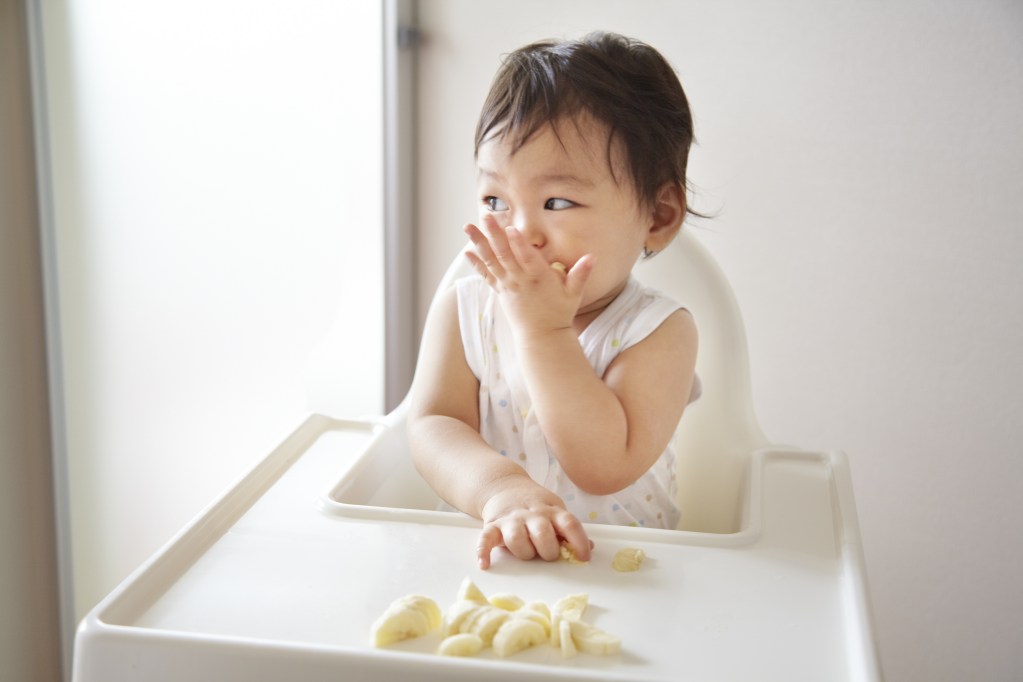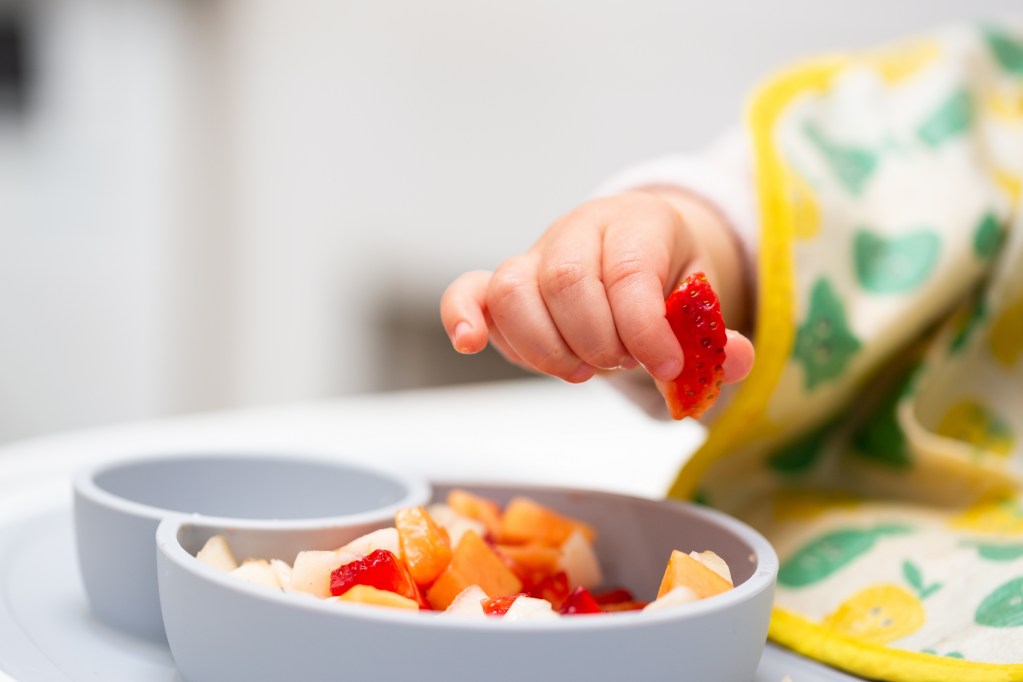Toddlers are busy bundles of energy and you can never take your eyes off them, especially when they’re eating. As toddlers discover new tastes and textures, they quickly become at greater risk for choking. Choking is the fourth leading cause of unintentional death in children under the age of five, with food being the most common cause of nonfatal choking.
Although toddlers can choke on just about anything they can fit in their mouths, there are some foods that parents can avoid during the toddler years to reduce that risk, as well as some precautions to take when preparing food for your little one. Knowing what foods are choking hazards for toddlers and how to care for a child if they are choking can help reduce serious harm to your little one.
Common choking hazards for toddlers

When it comes to foods that can be choking hazards, the list is quite long. Basically, anything that can block your child’s windpipe can be a choking hazard. The New York Department of Health notes that a child’s trachea is only as big as the opening of a straw, so it’s quite easy for it to be blocked when eating. While many foods can be a choking hazard, foods that are smooth, round, and hard present the most danger. Toddlers don’t always take the time to sit and fully chew their food which makes it even more important that what they’re eating doesn’t pose a choking risk.
Kids Health advises that parents avoid these foods completely until their toddler is about four years old:
- nuts
- sunflower seeds
- watermelon with seeds
- cherries with pits
- raw carrots, peas, and celery
- popcorn
- hard candy
- raw apples and pears
They also advise that if you’re going to serve your child hot dogs, cheese, grapes, or caramels you cut need to them into bite-sized pieces. Steaming or cooking vegetables also softens them and makes them easier to chew and swallow.
What else to avoid when feeding your toddler

Experts suggest that parents avoid foods that are sticky and can get caught in the throat, like peanut butter, chewing gum, and marshmallows. Your toddler may also love to snack while on the go or in the car, but that really can be unsafe. Toddlers should be sitting upright at all times while eating so they can focus on eating safely and they can be monitored while they’re eating. If a child chokes while eating in a car it can go unnoticed by the driver, which could have serious consequences. This is also why it’s important that an adult is always present and monitoring when a toddler is eating.
Size matters: Make sure to cut up your toddler’s food

Parents know they should be cutting up food for toddlers to eat, but often they don’t know exactly how to cut the food or into what size. Experts say that food should be cut to be no bigger than one-half-inch and foods like hot dogs, sausages, and grapes should be cut in triangles or half-moons. “The best size is about a quarter of the diameter of a hot dog or large carrot,” pediatrician Dr. Richard So, explained to the Cleveland Health Clinic. “It’s also a good idea to cut the food into triangular shapes to allow air to pass just in case the food does get caught in the child’s throat.” Dr. So also reiterated the importance of children sitting upright while eating. “Make sure they chew thoroughly,” he explained. “Don’t let them run around and play with food in their mouths. When kids sit and focus on what they’re doing, risks of choking go down significantly.”
Babyproofing: Food isn’t the only choking hazard for toddlers

Although food may be one of the main choking hazards for toddlers, toys and other household items also pose a risk. Toddlers are super curious by nature and won’t hesitate to put literally anything they can get their hands on in their mouths. Kids Health advises parents to get down on their hands and knees so they can better see all the hazards that their toddler may have access to and remove them from the room. It is also a great idea for parents and caregivers to take a CPR and first aid course so they know exactly what to do in the event a child does choke.
When to call 911

A child dies from choking on food once every five days in the United States, and more than 12,000 are admitted to the hospital with choking-related injuries annually. Le Bonheur Children’s Hospital advises parents to call 911 immediately if their child is:
- unconscious
- not able to breathe because something is blocking the airway or has caused it to close off
- wheezing or gasping
- not able to cry, talk, or make noise
- turning blue in the face
- grabbing at the throat
- looking panicked
Avoiding certain foods, ensuring vegetables are cooked or steamed, cutting up food, and always monitoring your child while they eat are all ways parents can help reduce the occurrence of choking. Accidents can and do happen every day which is why it’s always a good idea for parents and caregivers to take an appropriate first aid course. You can always speak to your pediatrician if you’re looking for a course near you.



